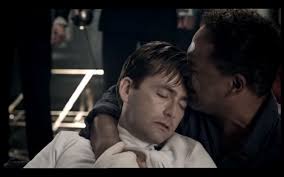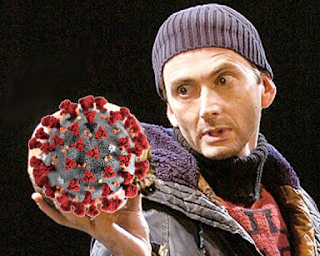Godwin's 2016 RSC Production: Act One

One of the unexpected benefits of lockdown has been the proliferation of free-to-air theatrical performances. The RSC's 2016 production with Paapa Essiedu as Hamlet has been shown on BBC iPlayer as part of their Culture in Quarantine access, and now forms part of our study. Act One runs for 41 minutes. The glimpse of Wittenberg student life emphasises the kind of world that Hamlet has 'lost', in addition to the loss of his father, as he arrives home. It also reminds the audience of his youth, and the celebratory moment of having a diploma conferred contrasts effectively with the grief later in Act One; the snapshot effect is also a signifier of change: a moment lost forever. Beyond this, the production has been described as the ' most traditional of interpretations '. For the first 'ghost' scene (though no ghost appears), the low, blue-black lighting means the actors are almost imperceptible at times - certainly difficult to pick out in the stage gloo...




